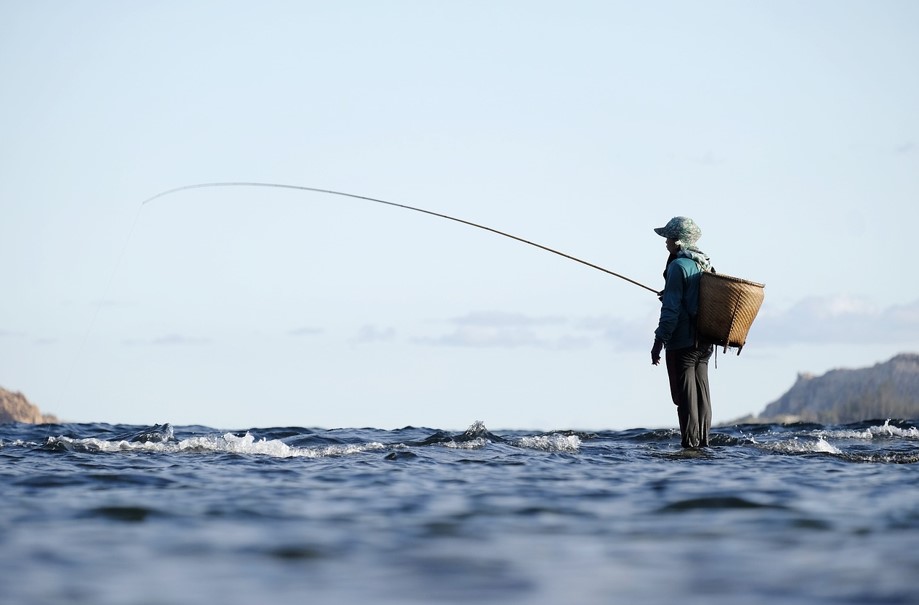Fishing in Texas is more than a weekend hobby—it’s a tradition, a way to connect with nature, and a chance to enjoy some of the most diverse waters in the country. Whether you’re planning to cast a line in the Gulf Coast, explore the lakes of East Texas, or take a quiet trip down the rivers, one thing is certain: you’ll need a Texas fishing license. Understanding the fees, regulations, and the process to obtain one will save you time and help you stay compliant with state laws.
Why a Texas Fishing License is Necessary
A fishing license in Texas isn’t just a government formality; it plays a vital role in conservation. Revenue from license sales funds wildlife management, habitat restoration, and educational programs that ensure future generations can enjoy fishing. Without these licenses, maintaining healthy fish populations and water ecosystems would be nearly impossible.
Who Needs a Texas Fishing License?
Most individuals who plan to fish in Texas waters need a license. This includes both residents and visitors. However, there are some exceptions:
-
Children under 17 years of age do not need a license.
-
Seniors aged 65 and above (Texas residents) qualify for discounted senior licenses.
-
Fishing in state parks is often free of charge—license requirements are waived inside designated boundaries.
-
Certain disability permits allow free fishing opportunities.
These exemptions ensure that families and special groups can continue to enjoy the sport without financial or legal barriers.
Texas Fishing License Types
Texas offers several types of fishing licenses to meet the needs of both residents and visitors. Choosing the right license depends on where you live, how often you plan to fish, and what type of fishing you intend to do.
Resident Licenses
-
Freshwater Fishing License – Required for anglers fishing only in lakes, rivers, and reservoirs.
-
Saltwater Fishing License – Needed for those fishing in bays, coastal waters, or the Gulf of Mexico.
-
All-Water Fishing License – A combination license allowing both freshwater and saltwater fishing.
-
Year-from-Purchase License – Valid for 365 days from the date of purchase rather than expiring at the end of August.
Non-Resident Licenses
-
Non-residents can also purchase freshwater, saltwater, or all-water licenses.
-
Short-term licenses are available for visitors planning brief fishing trips.
Special Licenses
-
Senior Discount Licenses for residents over 65.
-
Disability Licenses providing exemptions or reduced fees.
-
Lifetime Licenses, a one-time purchase that allows unlimited fishing for life.
Texas Fishing License Fees
The cost of a license depends on the type purchased. While prices may change yearly, here’s a general overview:
-
Resident Freshwater: around $30
-
Resident Saltwater: around $35
-
Resident All-Water: around $40
-
Senior Resident License: $12–$22 depending on type
-
Non-Resident Freshwater: about $55
-
Non-Resident Saltwater: about $63
-
Non-Resident All-Water: about $68
-
Short-term (1-day) license: around $11 for residents, $16 for non-residents
-
Lifetime License: approximately $1,000
These fees contribute directly to the Texas Parks and Wildlife Department (TPWD), funding conservation efforts statewide.
Texas Fishing Rules and Regulations
Having a license doesn’t mean unlimited fishing. Texas has clear rules designed to protect fish populations. Some of the most important regulations include:
-
Bag Limits: A maximum number of fish you can keep per day.
-
Size Limits: Minimum and sometimes maximum lengths to prevent overharvesting.
-
Seasonal Restrictions: Certain species may only be caught during specific times of the year.
-
Gear Regulations: Rules on the use of nets, trotlines, or other equipment.
Violating these rules can result in fines, confiscation of equipment, and even loss of license privileges. Before fishing, always check the TPWD’s annual Outdoor Annual guide for the latest regulations.
Where to Buy a Texas Fishing License
Purchasing a license is convenient, with multiple options available:
-
Online: The Texas Parks and Wildlife Department’s official website offers easy online purchases.
-
In-Person: Licenses are sold at many sporting goods stores, bait shops, and large retailers such as Walmart.
-
By Phone: A toll-free number allows for quick purchases.
-
TPWD Offices: Regional offices sell licenses directly.
Most licenses are digital, meaning you can carry proof of purchase on your phone. However, paper copies are still available for those who prefer physical documentation.
How to Choose the Right Texas Fishing License
Selecting the best license depends on your fishing habits:
-
Occasional Anglers: A short-term license is cost-effective.
-
Regular Residents: The annual all-water license is the most flexible.
-
Families: Parents should consider annual licenses while children under 17 fish for free.
-
Travelers: Non-residents should check short-term or all-water licenses depending on trip duration.
-
Long-Term Anglers: A lifetime license pays for itself over time.
Matching your license with your fishing lifestyle ensures you save money while following the law.
Tips for First-Time License Holders
-
Always carry your license while fishing, either in print or digital form.
-
Renew early to avoid last-minute stress, especially before popular fishing seasons.
-
Study the TPWD Outdoor Annual guide for updates on size and bag limits.
-
Keep your license safe from damage if you use a paper copy.
The Bigger Picture: Supporting Conservation
When you buy a Texas fishing license, you’re directly supporting the preservation of Texas waters and wildlife. The funds contribute to fish stocking programs, aquatic habitat restoration, law enforcement, and education initiatives. Every license purchase makes a difference in keeping fishing sustainable for years to come.
FAQs
Can I fish without a license in Texas?
Yes, but only under certain conditions, such as if you’re under 17, fishing in a state park, or have a disability permit. Otherwise, a license is required.
Do I need a separate license for freshwater and saltwater?
You can buy them separately, but an all-water license covers both, making it a better choice for versatile anglers.
Are Texas fishing licenses valid in other states?
No, Texas fishing licenses are only valid within the state. Neighboring states require their own licenses.
What happens if I fish without a license?
Fishing without a valid license may result in fines, loss of fishing privileges, or equipment confiscation.
Can I buy a Texas fishing license as a gift?
Yes, gift licenses are available and make a thoughtful present for friends or family who enjoy fishing.


